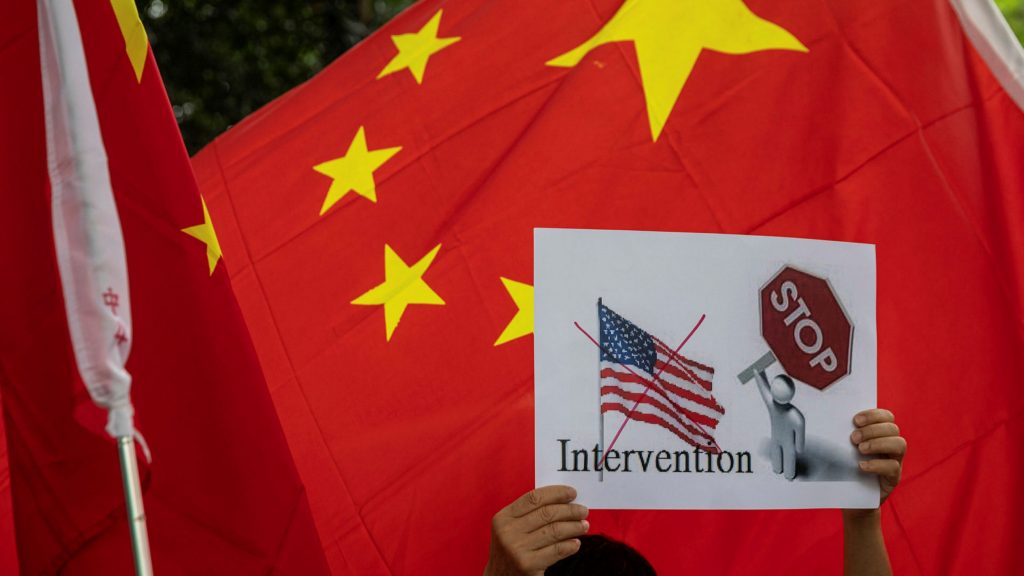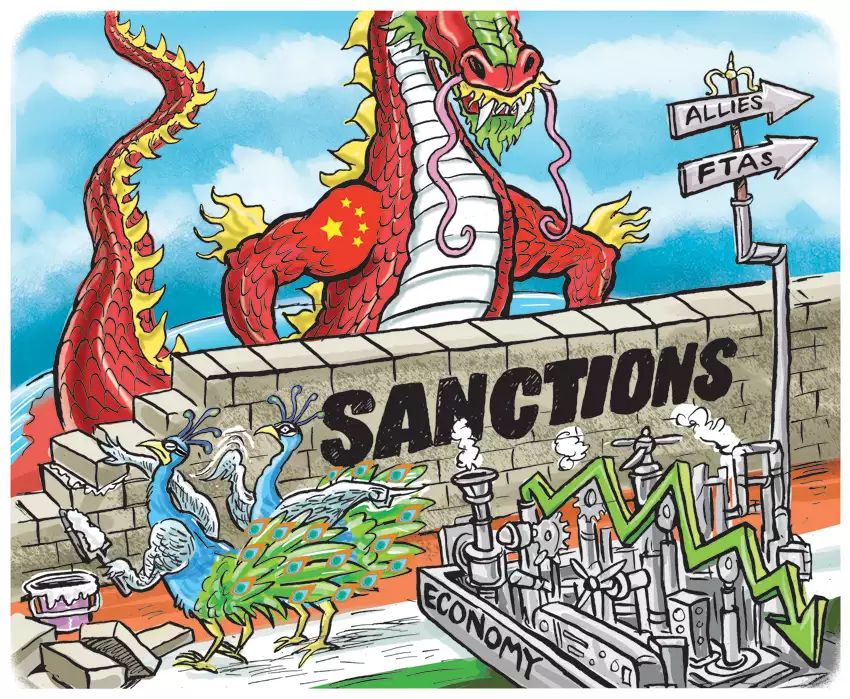
The Standing Committee of the 13th National People’s Congress passed strong self-defence legislation on June 10th, 2021. President Xi Jinping signed a presidential order, promulgating the Anti-Foreign Sanctions law and brought it into immediate effect.
Li Zhanshu, the chairman of the committee, said: “No one should expect China to accept any action that damages its own interests. The Chinese government and people resolutely oppose any sanctions and interference.”
Rationale behind the new legislation
The US had imposed multiple sanctions on China, beginning with the ban on Chinese technology giant Huawei and ZTE equipment, on cotton from Xinjiang, and investment in Chinese companies. Sanctions have been imposed due to the crackdown in Hong Kong, and the UK has even passed a resolution to term China’s actions in Xinjiang as ‘genocide’. China has retaliated with hefty sanctions on individuals, firms, and organizations from European countries.
With this new passed legislation, China will be able to have a stronger hold on foreign actions. In fact, China did not have a legal provision for imposing sanctions or a unilateral sanctions program while it had adopted the United Nations sanctions-related resolutions. But, since the early 2010s, China’s use of unilateral sanctions has increased. The growing economy and influence have also increased the ambitions of China. Over the past few years, the Chinese government has hinted at developing legal frameworks to provide long-arm jurisdictions.
In May 2019, the “Unreliable Entry List” was announced by the Ministry of Commerce (MOFCOM) which bore similar effects as that of sanctions. In January 2021, MOFCOM also issued Order No. 1 on the Chinese Blocking Statute. This allowed the Chinese government to term foreign sanctions as ‘unjustified extraterritorial applications’ and prohibited persons and entities to comply with these foreign sanctions.
Reports in Xinhua.net, China govt’s official mouthpiece, suggest that Chinese legal experts have claimed that a legal provision for imposing sanctions was absolutely necessary. The significance of retaliation loomed large with the US-China trade war. Discussion over being offensive against those who threaten national security was the loudest in the past few years.
Features of the new legislation

The new legislation authorizes relevant departments of the State Council to impose sanctions on individuals or organizations that violate Chinese interests, attempt to suppress or restrict Chinese citizens or organizations or interfere in China’s internal matters.
Further, the Chinese authorities can deny entry and visa issuance, freeze assets, and even deport the person out of the country in response.
Big domestic firms such as Alibaba have faced the wrath of going against China, and external companies, as valuable as Apple Inc., are also following Chinese demands to survive. It has maintained a severe crackdown on the public dissent in Hong Kong, Xinjiang, and other controversial parts of its territory. Many scholars and experts in China firmly believe that previously, China did not have the economic power or political will to use legal methods to retaliate against the US but now, it has both.
Impact of the new legislation
The legislation will have significant consequences for all foreign entities connected with China. It gives clear signals that China is not afraid of a trade war. The law demands respect of and adherence to the Chinese standards. It is yet to be seen how the foreign firms and investors will respond to such hard scrutiny of their actions.
